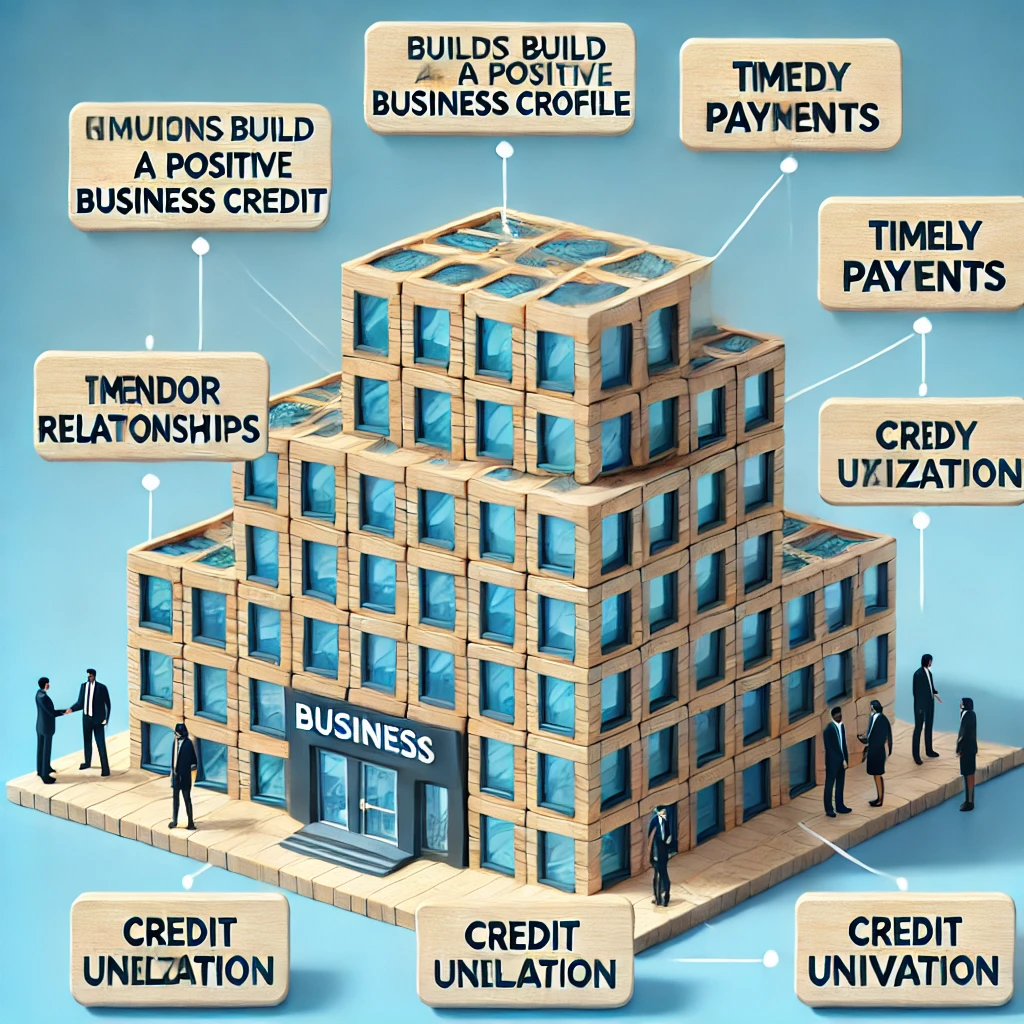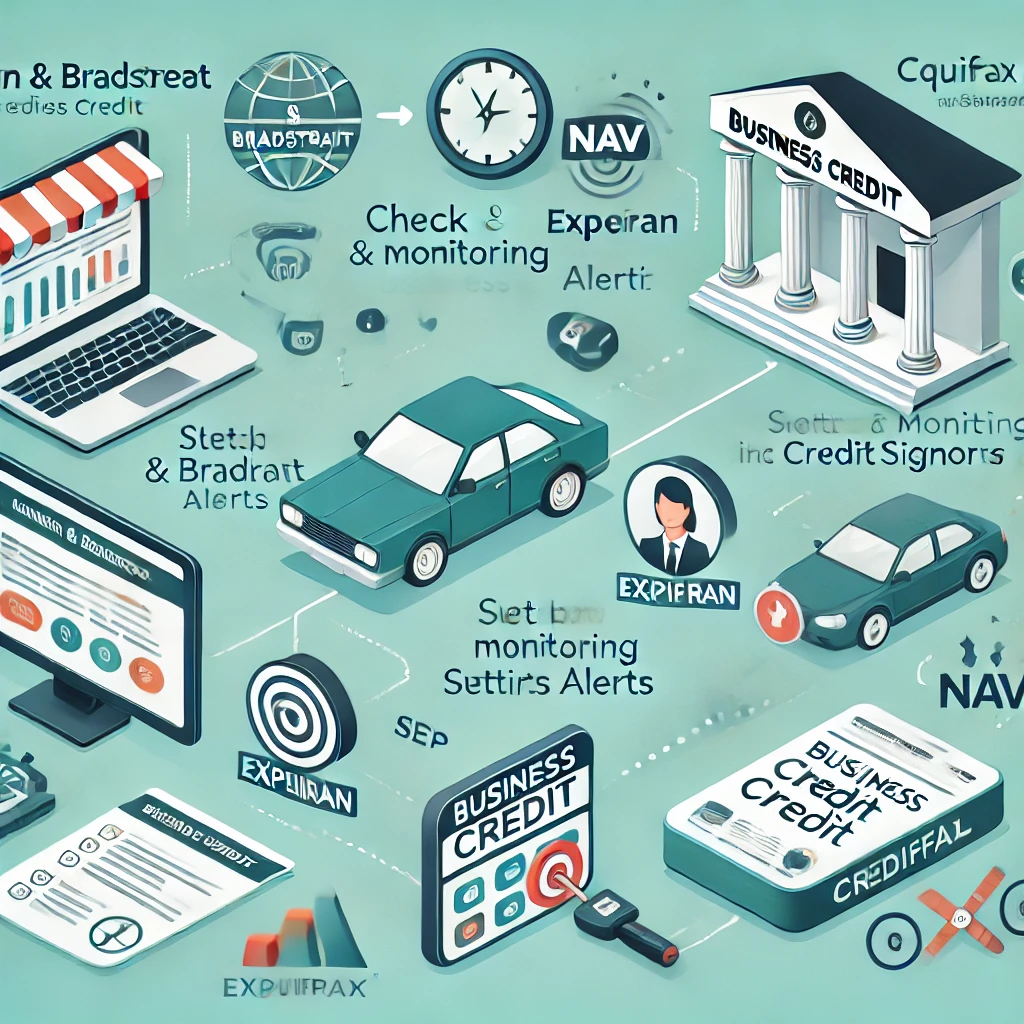
Understanding Business Credit Scores

A business credit score is a numerical representation of a company’s creditworthiness, reflecting the likelihood of the business meeting its financial obligations. Unlike personal credit scores, which assess individual borrowers, business credit scores evaluate the economic health of companies by taking into account factors such as payment history, outstanding debts, and the length of credit history. Business credit scores typically range from 0 to 100, with higher scores indicating lower risk to lenders and suppliers. A good credit score can be a vital asset in managing finances, securing loans, and positioning your business as a reputable player in the market.
To understand the nuances of a business credit score, it’s crucial to recognize the key factors contributing to its calculation. Payment history stands out as one of the most critical elements, as it reflects how promptly a business pays its bills and obligations. Timely payments significantly bolster a business’s score, while late payments can cause it to plummet. Another important aspect is credit utilization, which is the percentage of available credit that is being used. Consistently utilizing a high percentage of available credit can raise red flags for creditors, potentially lowering the score. Additionally, the length of credit history matters; businesses with a longer track record of responsible credit management tend to receive higher scores due to their proven ability to handle credit well.
Why Business Credit Matters
In the realm of entrepreneurship, the significance of business credit cannot be overstated. A solid business credit score is an essential asset, influencing numerous aspects of a company’s financial health and growth potential. One of the most immediate effects of a strong credit score is its impact on loan approvals. Lenders use business credit ratings as an assessment tool to gauge the risk associated with financing a particular venture. A robust score increases the chances of securing loans, grants, or funding lines for operational needs or expansion projects.
Not only does a favorable credit score enhance the likelihood of receiving financing, but it also allows for more favorable interest rates and repayment terms. Business loans with lower interest rates can significantly reduce the overall borrowing costs for a business, freeing up capital to reinvest into other areas of growth. On the other hand, businesses with poor credit scores often face higher borrowing costs and more stringent lending requirements, making it difficult to stay competitive in the market.
Moreover, business credit extends beyond financial transactions and influences broader aspects of a company’s reputation. A good credit score can strengthen supplier relationships, create opportunities for favorable payment terms, and even enhance customer perception. Companies that consistently demonstrate financial stability through a strong credit profile are more likely to form positive partnerships. Conversely, enterprises with a history of poor credit ratings may struggle to find reliable suppliers willing to extend credit, which can hurt overall cash flow and operational efficiency.

How to Check and Monitor Your Business Credit Score
Monitoring and understanding your business credit score is a crucial aspect of maintaining a healthy financial standing. The three primary credit reporting agencies for businesses include Dun & Bradstreet, Experian, and Equifax. Each of these entities provides reports that reflect a company’s creditworthiness and financial behaviors, and each agency may have slightly different metrics for evaluating a company’s credit.
To check your business credit score, you can apply for a report from these agencies online. Typically, the agencies require basic information such as your business name, address, and tax identification number. Once you receive your reports, reviewing them thoroughly is essential. Look for inconsistencies or errors that might negatively impact your credit score. Pay close attention to aspects like payment history, credit utilization, and any public records like liens or bankruptcies that might affect your score.
Regular monitoring is crucial, as your business credit can fluctuate based on factors like payment behavior or new credit inquiries. There are numerous tools and services available to track and alert you to changes in your business credit score, including CreditSignal by Dun & Bradstreet and Nav’s Business Credit Monitoring. These services often provide features such as credit score tracking, alerts for significant changes or potential fraud, and guidance on improving your credit profile. Staying informed about your credit status allows you to be proactive about maintaining or improving your score.

Building a Positive Business Credit Profile
Establishing a strong business credit profile is crucial for entrepreneurs looking to secure financing and enhance their business’s credibility. The first step is to create credit accounts with reputable vendors who report to major credit bureaus. Vendor credit lines from suppliers that report your payment behavior can help your business build a positive history. Consistently paying these vendors on time will reflect well in your credit reports.
It is also important to ensure the accuracy and consistency of business information across various platforms. Maintaining the same business name, address, and phone number across public records, online directories, and even social media can help prevent confusion and demonstrate stability to creditors. Registering your business with the appropriate authorities and ensuring up-to-date information helps create trust and legitimacy in the eyes of financial institutions.
A vital component of building your credit is responsible financial management, mainly keeping your credit utilization low. Strive to maintain a utilization ratio below 30% to show that your business is not overly reliant on borrowing. Additionally, paying all bills on time or early can significantly boost your credit score. Consider setting up automated payments to avoid missing any deadlines, thus ensuring that your payment history remains flawless.
Common Pitfalls to Avoid in Business Credit Management
Building and maintaining a healthy business credit profile can be challenging, especially for new businesses. One of the most common mistakes is making late payments. This can severely damage your credit score, and recovering from repeated late payments can be extremely difficult. Setting up reminders and using accounting software like QuickBooks to track expenses and due dates can help mitigate this risk.
Another common mistake is maxing out credit lines. High utilization ratios can negatively impact your score, signaling financial stress to potential lenders and creditors. Aim to use no more than 30% of your available credit limit at any given time. Furthermore, many business owners overlook the importance of monitoring their credit reports. Errors or outdated information can drag down your creditworthiness. Make it a habit to check your credit reports at least annually and promptly dispute any inaccuracies.
Repairing a Damaged Business Credit Score
If your business credit score has taken a hit, it’s important to take proactive steps to repair it. Start by reviewing your credit reports from the major credit bureaus and verifying the accuracy of the information. Should you identify errors, initiate a dispute process directly with the bureau, which typically involves providing documentation to substantiate your claim. Dispute inaccuracies promptly to ensure your credit score reflects the most accurate data.
If your business has fallen behind on payments, reach out to your creditors to negotiate repayment terms or create a structured payment plan. Communicating openly with creditors can sometimes lead to more favorable arrangements that make catching up on payments manageable. Additionally, consider reducing your overall debt load to bring down your utilization ratio—this action can improve your credit score over time.
Using Business Credit Wisely
Effectively utilizing business credit involves strategic decision-making to foster growth while mitigating financial risks. It’s essential to balance your credit utilization with cash flow management. Evaluate whether using credit for a specific purchase or investment will yield a return that justifies the interest or fees involved. Forecasting cash flows can help in determining whether taking on additional debt will benefit your business in the long term.
Having a clear business plan when seeking credit is also vital. Lenders want to see a detailed plan on how borrowed funds will generate growth and profit. This not only improves the likelihood of loan approval but also fosters a responsible approach to using credit that supports long-term growth rather than leading to overextension.
The Role of Business Credit in Funding Options
Business credit plays a pivotal role in determining what funding options are available to a company. A robust business credit score can significantly enhance a company’s ability to secure loans, lines of credit, and investor deals. Financial institutions often assess creditworthiness through an entity’s business credit profile. Businesses with strong credit profiles are viewed favorably, which can unlock a range of financing opportunities. For example, you can secure SBA loans or lines of credit with better terms if your business has a proven track record of managing its finances responsibly.
Additionally, potential investors often look at business credit scores as part of their due diligence. A strong score can be a positive signal, demonstrating that the business manages its debts well, which could make the difference between securing investment or not. As such, maintaining a good credit score is not just a tool for obtaining loans—it can be a core part of your company’s growth and development strategy.
Resources for Business Credit Management
Several resources can help business owners better manage and understand their credit. Start by obtaining credit reports from Dun & Bradstreet, Experian, and Equifax. These credit reporting agencies offer detailed credit profiles that can provide valuable insights into what impacts your business’s credit score.
For educational purposes, consider leveraging resources like the Small Business Administration (SBA), which offers workshops, guides, and tools on best practices for building and repairing business credit. Credit monitoring services like Nav and CreditSignal can help you stay on top of changes in your credit score, alerting you to potential problems early on.
Finally, using financial management tools such as QuickBooks and FreshBooks can simplify accounting and help ensure bills are paid on time, positively influencing your credit score. These resources combined provide a solid foundation for effectively managing your business’s credit profile, allowing you to make well-informed decisions and set your business on the path to long-term financial success.
How Business Credit Affects Insurance Premiums
A strong business credit score can influence more than just your ability to secure loans and favorable credit terms—it can also affect your insurance premiums. Many insurance providers use business credit scores as part of their risk assessment process when determining insurance rates. Businesses with higher credit scores are often perceived as being financially stable and less likely to file claims. As a result, these companies may qualify for lower insurance premiums, which can lead to substantial cost savings over time. Conversely, a poor business credit score can result in higher premiums, adding an extra financial burden. Learn more about how credit affects business insurance.
Impact of Business Credit on Lease Agreements
Business credit scores also play a critical role when negotiating lease agreements for office space or equipment. Landlords and leasing companies often review a company’s credit profile to evaluate its financial stability and ability to meet rental obligations. A strong credit score can improve your chances of getting approved for a lease and might even provide leverage in negotiating more favorable lease terms, such as lower security deposits or more flexible payment schedules. Conversely, companies with weaker credit may face difficulties securing desirable lease terms or could be asked to pay a higher deposit to mitigate perceived risks. Explore leasing options for your business.
Business Credit vs. Personal Credit: Key Differences
While business and personal credit scores both indicate creditworthiness, they are fundamentally different in how they are calculated and utilized. Personal credit scores primarily reflect individual financial behaviors and are used when applying for personal credit products like mortgages or credit cards. In contrast, business credit scores are designed to assess the creditworthiness of a company. They are used by lenders, suppliers, and other stakeholders to evaluate the financial health of a business. Additionally, business credit scores range from 0 to 100, while personal scores typically fall between 300 and 850. Maintaining a clear separation between your business and personal credit is essential to protect your finances from potential risks related to your business. Understand the differences between business and personal credit.
The Role of Trade References in Building Business Credit
Trade references are an important yet often overlooked aspect of building a strong business credit profile. These references come from suppliers or vendors who extend credit to your business and can provide positive feedback regarding your payment history and reliability. Including trade references in your credit file can demonstrate to potential creditors and lenders that your business has established solid relationships and consistently pays its bills on time. This can enhance your business credit score, providing better financing options. Learn more about trade references and how they can contribute to your business credit profile.
How Business Structure Impacts Creditworthiness
The structure of your business can significantly influence its creditworthiness. For example, sole proprietorships often face greater challenges in building a business credit profile because personal and business finances are closely linked. In contrast, incorporated entities such as LLCs or corporations have a distinct legal identity, making it easier to establish and build business credit separate from personal credit. Choosing the right business structure can be crucial in how quickly and effectively you can build a positive business credit history. Determine the best business structure for your credit goals.

